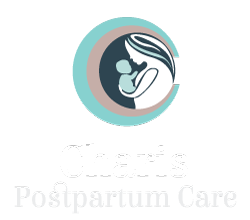About


Giving Brith in Cultures Around the World
Many cultures around the world prescribe a period of rest for postpartum mothers to help them heal properly. In many places the world over, postpartum mothers are given a 30–40-day complete rest while surrounded by their families, nuclear and extended, so they can recover and heal. In many agrarian cultures, certain postpartum rituals, which include traditional foods and healing medicines are emphasized, in addition to support for daily household tasks.
However, in Canada, this support tends to be generally non-existent for most postpartum women. In research conducted with Northeast African immigrants in Edmonton, Alberta for instance (Quintanilha et al., 2016), they lamented the lack of postpartum support in Canada as compared to their countries of origin. Research has shown that a lack of support is directly related to postpartum depression, which impacts the mental and physical health of mothers negatively, while increasing healthcare costs. The American College of Obstetricians and Gynecologists (ACOG) in 2018 released important guidelines for optimizing postpartum care, arguing that the weeks after childbirth, up to the 12th week (what has been called the 4th trimester), are critical for both mother and child, and could have long-term negative health and well-being implications if not properly managed.
In recent years, a number of postpartum retreat centres have opened in the United States and Canada to help postpartum mothers navigate this terrain. While this is welcome news, the price tag ($1,000 plus a night) puts this out of the reach of many working-class Canadians. Further, according to Today’s Parent, experts argue that what postpartum mothers really need are not mini vacations but to be in their own home with their family while being supported with household tasks so they can sleep and recover, all the while knowing their newborns are well cared for. Charis Postpartum aims to fill this gap by providing efficient and cost-effective bespoke postpartum services during the critical 4th trimester period (the first 12 weeks after birth) in-home. We are currently working on acquiring a physical facility where we can balance in-home with home-away-from-home care, should that become necessary.
Our Story
I had my first child at the age of 32. At the time, I had just come out of an abusive relationship, and I lived with my older sister and her three kids in Vancouver. I started nursing school right after but because of the support of my immediate family and friends, I was able to finish nursing school in under a year, after which I moved to Calgary. I had my second child 6 years later, and the postpartum complications I suffered thereafter opened my eyes to the difficulties mothers go through. For the first couple of weeks after the birth of my second child, I was confined to my bed, unable to move around as a result of the complications I suffered, and it fell to my husband, who could only take a few weeks off work, to help with my daily activities while also helping to care for me, our older child and the newborn. There were no complications with the birth of my third child, but the story remained much the same, and it was only years later that I realized I fit the classic description of postpartum depression. Thinking through my experience and connecting it with the wider literature on women’s healthcare in general, and postpartum support in particular, I realized that Alberta (and Canada) could benefit from an efficient and accessible postpartum service that all Canadians, irrespective of social class could benefit from.

FAQ’s
Your Questions Answered
Who will be coming to my home?
Our team consists of experienced and certified healthcare workers with postpartum and postnatal care training. All caregivers are thoroughly vetted, trained, and insured.
How do you ensure the safety of my family?
Our caregivers adhere to strict hygiene and safety protocols. We also conduct police and vulnerable sector checks and provide ongoing training for our staff.
